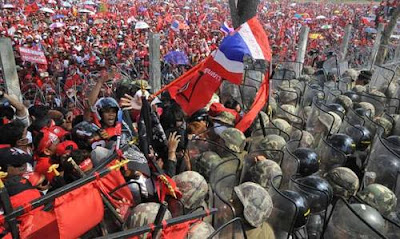If we want to truly innovate our lifestyles and consciously choose to become more adaptive and healthy then we are going to need to look closer at the knowledge and wisdom embedded within all cultures and ways of being in the world.
Understanding and learning the skills and insights of the world’s indigenous and non-industrial peoples will allow us to begin to integrate our individual and collective intelligences with science and ethics - and equip our species with the capacity to boldly engage a very uncertain future. By embracing the natural capacities found throughout the world, often in the most unsuspecting settings, we can begin to evolve more enriching and meaningful forms of life.
It is with this goal of synthesis, evolution and praxis in mind that I present to you the 2009 Massey Lectures.
The Massey Lectures are one of the most prestigious events in Canada, in which a noted Canadian or international scholar gives a week-long series of lectures on a political, cultural or philosophical topic. The Massey Lectures were created in 1961 to honour Vincent Massey, Governor General of Canada. The purpose of these lectures is to enable distinguished authorities to communicate the results of their original study on important subjects of contemporary interest. Some of the most famous Massey Lecturers have included Claude-Levi Strauss, Noam Chomsky, Jane Jacobs, John Ralston Saul and Martin Luther King, Jr.
The 2009 Massey Lectures, entitled "The Wayfinders: Why Ancient Wisdom Matters in the Modern World", were delivered by anthropologist Wade Davis. A native of British Columbia, Canada, Davis is an award-winning anthropologist, ethnobotanist, filmmaker and the bestselling author of several books, including The Serpent and the Rainbow, One River, and Light at the Edge of the World. Davis has published 150 scientific and popular articles on subjects ranging from Haitian vodoun and Amazonian myth and religion to the global biodiversity crisis, the traditional use of psychotropic drugs, and the ethnobotany of South American Indians. Davis has also worked as a licensed river guide, park ranger and conducted ethnographic fieldwork among several indigenous societies of northern Canada.
Davis currently holds the post of National Geographic Explorer in Residence, and divides his time between Washington, D.C. and northern British Columbia.
Here is an excerpt from the official description of the lectures:
The Wayfinders is a profound celebration of the wonder of human genius and spirit as brought into being by culture. Of the 7,000 languages spoken today, fully half may disappear in our lifetimes. This does not have to happen. The other cultures of the world are not failed attempts to be modern, failed attempts to be us. Every culture deserves a place at the council of the human experience.
In The Wayfinders anthropologist Wade Davis reveals the significance of what may be lost through a wild and thrilling exploration of what remains with us and very much alive. Travel to Polynesia and celebrate the art of navigation that allowed the Wayfinders to infuse the entire Pacific Ocean with their imagination and genius. In the Amazon await the descendants of a true Lost Civilization, the People of the Anaconda, a complex of cultures inspired by mythological ancestors who even today dictate how humans must live in the forest. In the Andean Cordillera and the mountains of the Sierra Nevada de Santa Marta of Colombia discover that the Earth really is alive, pulsing, responsive in a thousand ways to the spiritual readiness of humankind. Dreamtime and the Songlines will lead to the melaleuca forests of Arnhem Land, and an understanding the subtle philosophy of the first humans to walk out of Africa, the Aboriginal peoples of Australia. In Nepal a stone path leads to a door opening to reveal the radiant face of a wisdom hero, a Bodhisattva, Tsetsam Ani, a Buddhist nun who forty-five years ago entered lifelong retreat. The flight of a hornbill, like a cursive script of nature, will let us know that we have arrived at last amongst the nomadic Penan in the upland forests of Borneo.
What ultimately we will discover on this journey will be our mission for the next century. There is a fire burning over the Earth, taking with it plants and animals, ancient skills and visionary wisdom. At risk is a vast archive of knowledge and expertise, a catalogue of the imagination, an oral and written language composed of the memories of countless elders and healers, warriors, farmers, fishermen, midwives, poets, and saints. In short, the artistic, intellectual, and spiritual expression of the full complexity and diversity of the human experience. Quelling this flame, and rediscovering a new appreciation for the diversity of the human spirit as expressed by culture, is among the central challenges of our times.
Adobe Flash Player is required to listen to audio files. You can download it for free.
Listen to Lecture 1 - Season of the Brown HyenaMy hope is that after you listen to these insightful and moving lectures you will start to think about your role in the human adventure as one of a wayfinder - a sentient being generated from this planet and embodied with the opportunity to find their way in a world filled with possibility, danger and meaning. We can choose to listen to the wisdom our our past and collective present, taking up unknown or forgotten practices and honing our ability to thrive, or we can go on about our current ways and annihilate ourselves by consuming our way to ecological degradation and political inhumanity. Such a choice is never quite that simply - with creative compromises and possibilities at every turn - but it is nonetheless essential. What we choose to become in this generation will set the very limits and potentials of every generation that follows. Let us then choose wisely.
Listen to Lecture 2 - The Wayfinders
Listen to Lecture 3 - Peoples of the Anaconda
Listen to Lecture 4 - Sacred Geography
Listen to Lecture 5 - Century of the Wind





















